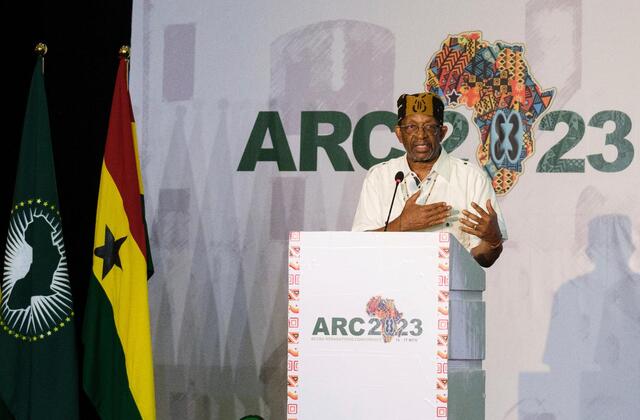In a reparations summit held in 2023 in Ghana, delegates decided to create a Global Reparations Fund to demand compensation for millions of Africans who were enslaved centuries ago during the transatlantic slave trade.
The Accra conference on reparations contributed to increasing calls for reparations following an estimated 12 million Africans transported from West Africa to Europe between the 16th and 19th century, put into slavery to serve on plantations. This made possible an aspect of wealth creation, while leaving the Africans impoverished.
Even half a millennium after the slave trade, people of African origin suffer from racism throughout the world and racist killings; And, as a recent report from the special UN forum states, it advocates reparations as the basis of justice in the 21st century.
Senior government officials from across Africa, as well as the diaspora community, were in attendance at the conference.
“It is time that Africa, whose sons and daughters had their freedoms controlled and were sold into slavery, also received reparations,” said Nana Addo Akufo-Addo, the president of Ghana.
According to Mr Akufo-Addo, all moral rights of enslaved slaves were taken away and European persons and nations got rich during the slave trade, while enslaved Africans were impoverished. He then urged the world to accept slave reparations as an issue it must face and cannot avoid.
Participants at the Accra conference never explained how exactly such a reparations fund would be operated. According to Gnaka Lagoke, an assistant professor of history and Pan-African studies, it should be utilized to “correct the problems” that the continent has in all aspects of its economy.
“The compensation is based on the moral and legal rights and dignity of the people,” said the strategic advisor to the vice-chairperson of the African Union Commission, Ambassador Amr Aljowailey, in his reading of the resolution titled “Proclamation of ‘Accra’”.
Mr. Aljowailey noted that the Global Reparations Fund is to be sustained by an expert committee which will be set up by the AU Commission in cooperation with African states. There will be a special envoy who will conduct publicity and lobbying and who will undertake legal action.
The reparations, according to activists, should not only involve financial compensation, but include development assistance to African countries, recompense to colonized resources, and reformation of oppressive policies and laws.
The reparation amount will be assessed in a “negotiated settlement (that) will benefit the masses,” Nkechi Taifa, director of the US-based Reparation Education Project, stated.


